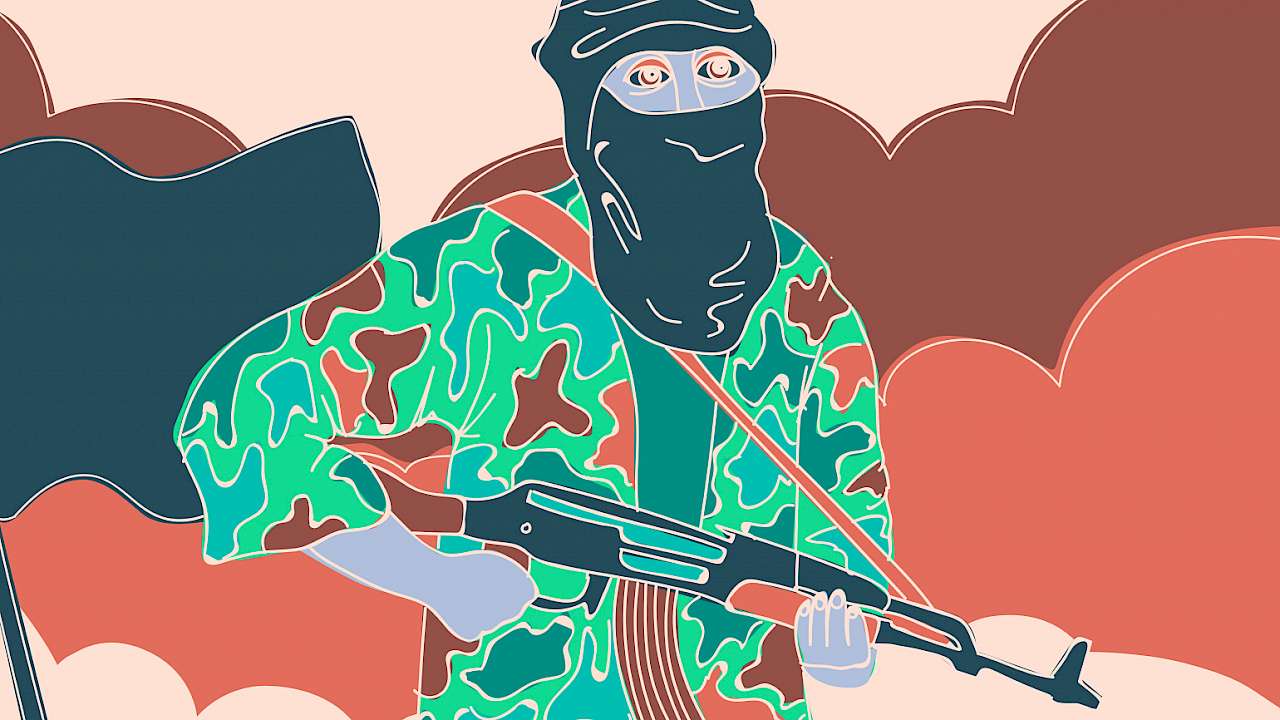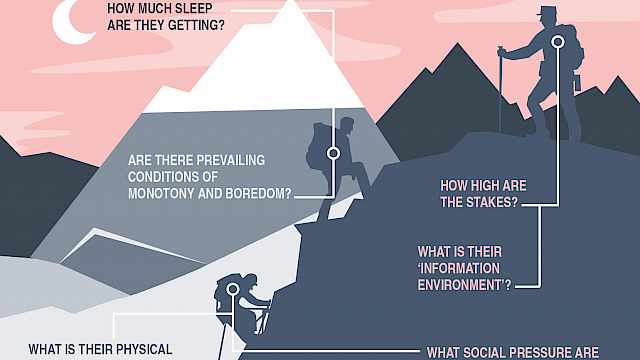We can learn a great deal from the ideologies of groups engaged in terrorism and other forms of political violence: how they shape perceptions of the problems facing their societies; what solutions and methods for implementing them they advocate; and how they mobilise supporters behind these solutions.
However, ideologies do not exist in a vacuum but instead adapt to specific contexts and cultures. They both influence, and are influenced by, their environment and the composition of the groups themselves.
My PhD research seeks to explain ideological variance and change by examining this interactive process in the context of the insurgency in Russia’s North Caucasus. Through this, I aim to develop a richer understanding of what we can learn from the ideological statements of groups, beyond simply taking them at face value.
What is 'ideology' and why does it matter?
Ideology is a controversial and politicised term, and its significance for understanding political violence is not universally accepted. Those who dismiss it argue that ideology is merely a tool that leaders use to attract support and resources, or is secondary to more fundamental factors like inequality or repression. That many members cannot coherently articulate the ideologies of the groups to which they belong illustrates ideology’s relative unimportance. If we truly wish to understand political violence, we are better served by devoting our resources to studying underlying interests and factors.
Ideology alone is insufficient for explaining political violence
Such objections raise an important point: ideology alone is insufficient for explaining political violence. At the same time, ignoring it also leaves much unexplained. Problems, solutions, identities, moral values – none of these exist as objective, unchanging facts, but as competing interpretations in the minds of actors. Ideologies play an important role in identifying how problems are perceived and who is to blame for them. They establish goals and the acceptable means for achieving them. And they help shape the identities of both an in-group and an out-group. Thus they provide a framework for interpreting the world and establishing the ethical and moral parameters of action, and they may do so even when a person cannot coherently articulate them.
Contextualising ideology
We gain a better understanding of ideology and its role alongside other factors when we treat it not as something abstract, but as something that operates in a specific context. This means looking both at ideological material and the groups and circumstances that produce it. In this way, we can see how political opportunities and restraints shape ideologies and produce different attitudes and behaviours. We can also better understand the role of leaders and networks and the impact of the composition of groups on the ideological positions they adopt. Through this, we are better placed to interpret the ideological material that groups produce.

The North Caucasus insurgency
My PhD research seeks to understand these questions by examining groups within the North Caucasus insurgency. Specifically, it looks at the organisation known as the Caucasus Emirate (Imarat Kavkaz, IK) between its proclamation in October 2007 and the death of its last known leader in August 2015, focusing on Dagestan and Kabardino-Balkaria.
The insurgency operated for a prolonged period of time and experienced considerable change in group membership and local and global political circumstances. It operated across a diverse region where local authorities pursued distinct counterinsurgency strategies. And it employed and debated a diverse range of tactics.
Thus, it provides us with an opportunity to consider how ideology is impacted by and itself impacts a broad range of factors. Moreover, it provides us with an opportunity to expand our understanding of jihadism by considering a group outside the Arabic-speaking, Middle Eastern/North African milieu that is the typical focus of studies of that diverse ideological phenomenon.
The value of learning from ideology
The propaganda that groups produce typically reveals far more than its authors intend. It can, for example, shed light on the disputes and tensions between members over goals and methods, which opposing authorities may seek to exploit. Moreover, when groups operate in non-democratic countries, such propaganda can be one of a very limited number of sources of information on groups.
It is, therefore, vital that we are able to learn as much as possible from this propaganda and understand the significance of ideological variance and change.
Copyright Information
As part of CREST’s commitment to open access research, this text is available under a Creative Commons BY-NC-SA 4.0 licence. Please refer to our Copyright page for full details.
IMAGE CREDITS: Copyright ©2024 R. Stevens / CREST (CC BY-SA 4.0)





